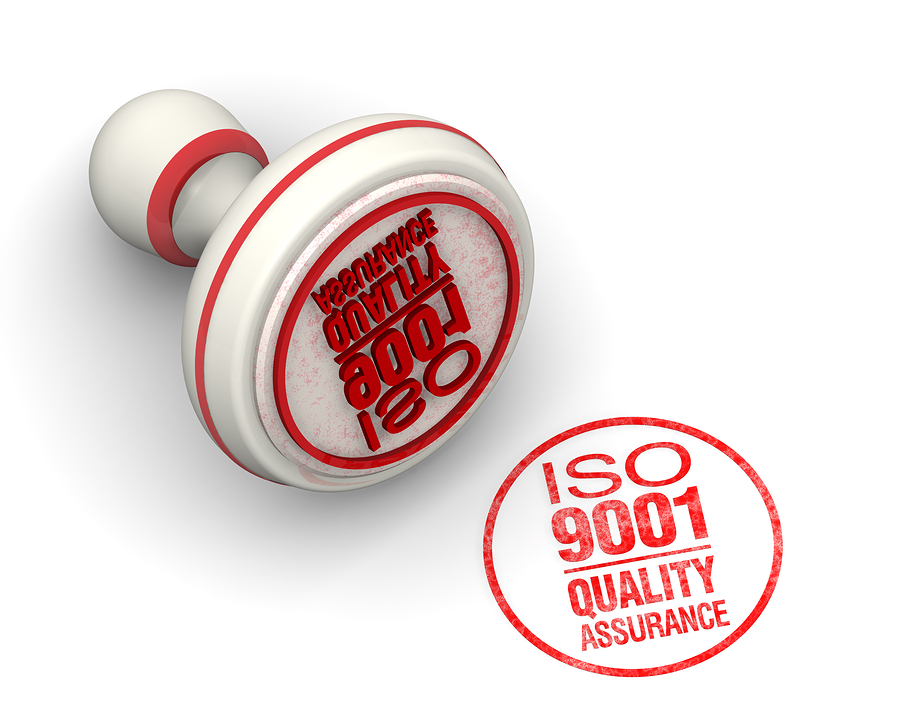Quality management is widely practiced across the globe to maintain desired levels of excellence. Large companies use quality management to optimize their competitiveness, increase customer satisfaction, and improve the bottom line. However, quality management is not reserved for large corporations only. Small businesses should also invest in quality management to increase business efficiency, enhance understanding of customer needs, and boost productivity. There are many quality management systems that small businesses can use. Among the common ones is ISO 9001. This article offers a simple guide to ISO 9001 certification for small businesses.
What is ISO 9001?
In short, ISO 9001 is an internationally recognized quality management system (QMS) for businesses. It is also a powerful business improvement tool for enterprises regardless of size and industry. ISO 9001 additionally helps to continually improve and manage quality in your enterprise and identify areas that require improvement.
Organizations use ISO 9001 to demonstrate that they can offer products and services that meet regulatory and consumer requirements. When an organization meets all the requirements of ISO 9001, it becomes ISO 9001 certified. In fact, over one million organizations in 170 nations are ISO 9001 certified.
Why it matters
ISO 9001 has numerous benefits for your business, such as:
- It helps to improve and streamline business operations
- Wins more business—new and repeat business
- It increases customer satisfaction by understanding and meeting customer needs
- Encourages efficient processes
- Assists in building a sustainable business
- Aids to work effectively with stakeholders—from suppliers to investors and the public
- Reduces costs
- Offers continuous assessment
ISO 9001 also has benefits for your customers including:
- Improved quality and service
- Few complaints and returned products
- Right first-time attitude
What’s the difference between ISO 9001: 2015 and ISO 9001: 2008?
ISO 9001: 2015 replaced ISO 9001: 2008 as the latest version of ISO 9001 standards. It has various changes from the ISO 9001: 2008 including;
- Adoption of new ISO structure that is consistent with standards such as ISO 14001
- Advocates for a process approach to quality management
- Emphasizes that top-level management should own QMS
- Focuses on customer satisfaction
- Compared to previous versions, ISO 9001: 2015 has less prescriptive requirements
- Uses simple terminology
- Emphasizes on input and output
- Risk-based thinking is at the core
Why should companies look for manufacturers with ISO 9001 certification?
When choosing a manufacturer for your business, you have to be very cautious. You’re not only handing over your production to another enterprise, but you’re also handing over your reputation—something invaluable. Consequently, you must be selective about the manufacturer you choose. It’s best practice to select a manufacturer with ISO 9001 certification. Here are three reasons you should look for manufacturers with ISO 9001 certification.
- With ISO 9001 certification, you’re assured that the manufacturer is effective and efficient. ISO 9001 certification guarantees the manufacturer adheres to the highest level of customer service, safety, and order fulfillment speed. When these three factors combine, you’re assured that your production is in good hands.
- ISO 9001 certification compels manufacturers to seek continuous improvement. The manufacturer is always identifying ways to improve processes, products, and services all for your benefit. It also implies the use of the latest technologies to make quality products that exceed customers’ expectations.
- ISO 9001 certification improves operational efficiency while reducing waste and saving money. A manufacturer can pass the cost-saving benefits to customers through competitive pricing and quality products.
Although ISO 9001 certification is a vital metric to consider when choosing a manufacturer, do not forget to assess other factors affecting the certification. First, look for a manufacturer who is honest about their accreditation. One that should tell you of any audit findings that need correction and what they are doing to correct them.
Second, identify a manufacturer with a history of positive audit findings. This guarantees that the manufacturer has been engaging in positive manufacturing from the beginning. Is your business ISO 9001:2015 certified? It’s time to get certified and enjoy its benefits. Contact us for more details.

